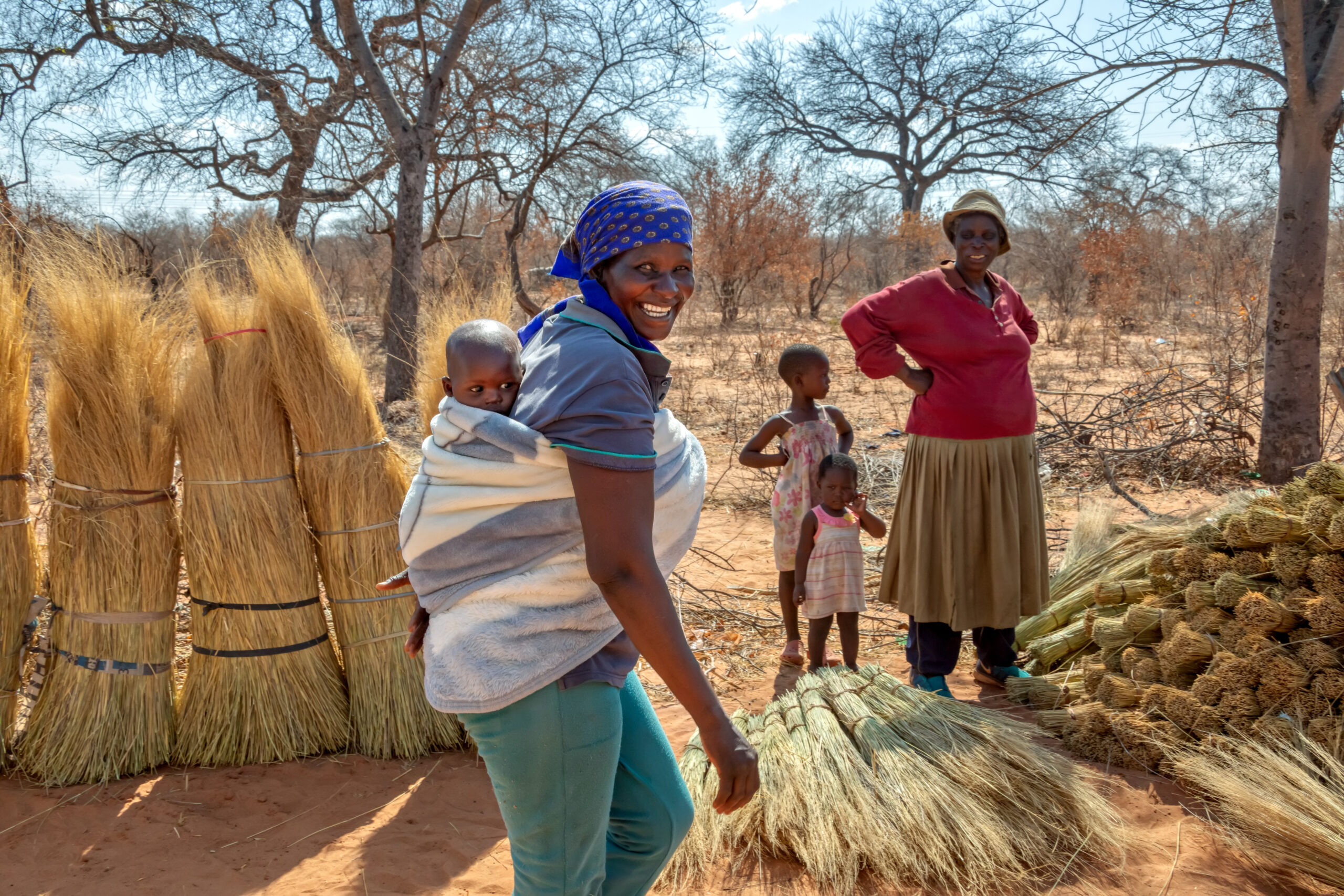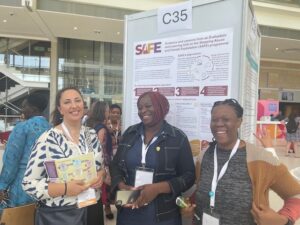
Fostering stronger linkages between research and implementation partners is critical to building the evidence base on what works to prevent gender-based violence (GBV). This is particularly valuable in iterative, adaptive programmes like the FCDO-funded Stopping Abuse and Female Exploitation (SAFE), where evidence can support verification and validation of programme data.
In recognition of this year’s 16 Days of Activism against Gender-Based Violence campaign, we reflect on how our work on the SAFE programme contributes to the global efforts to eliminate violence against women and girls. As the lead on the SAFE Evaluation and Learning Unit (ELU), Tetra Tech provides rigorous evidence to our partners on SAFE’s effectiveness and impact on preventing GBV in Zimbabwe and supports learning and adaptation across the programme.
Our SAFE ELU Team Leader, Julienne Corboz, participated in a poster session at the SVRI Forum between 21 and 25 October 2024, presenting Evidence and Lessons from Learning Unit Supporting Adaptive GBV Prevention Programming in Zimbabwe. Here, we share some key insights from the presentation.
Enhancing the effectiveness of partnerships
Building in resourcing for ELUs can help interventions learn, adapt and test effectiveness and impact over time, building stronger evidence for what works to prevent violence. At the SVRI Forum, we shared key lessons learned on how to maximise the effectiveness of evaluation and learning partnerships with programme implementers.
The presentation made an important contribution to learning about how an ELU can support GBV prevention programmes, discussing the ‘value add’ of an ELU as well as the pros and cons of having an external versus internal ELU. To enhance the success of partnerships, we emphasise that ELUs and implementation partners need to build trust and coordinate effectively to ensure evidence is generated at the right time. ELUs must also be flexible and responsive to the evolving learning needs of the programme.
Using evidence to support learning and evaluation
We illustrated how an ELU can support learning, adaptation and evaluation of violence prevention interventions by sharing key findings from six SAFE ELU studies: a baseline quantitative study with 1,200 women, a baseline and endline qualitative cohort study with 220 women and men, two qualitative deep dive studies, and a process evaluation.
Through a snapshot of results from ELU studies, we showed the different uses of evidence in the programme, specifically:
- Formative learning: Baseline data found a strong relationship between men’s alcohol consumption and women’s experience of intimate partner violence (IPV). Adaptations to the social empowerment curriculum were subsequently made to strengthen content on alcohol.
- Testing the theory of change: A qualitative deep dive study confirmed the complementarity of the economic and social empowerment components. Savings and loans groups provided an enabling environment for social empowerment outcomes, allowing members to put into practice joint decision-making and visioning learned through the social empowerment curriculum.
- Measuring effectiveness: A qualitative process-level study found that peer facilitators who co-facilitated Toose – a social and economic empowerment intervention (“Together” in Shona) – and conducted community diffusion sometimes struggled to deliver messages in gender-transformative ways. The programme conducted a workshop with peer facilitators to understand their experiences and journeys and is developing stronger facilitator guidance and support.
- Measuring impact: The qualitative longitudinal cohort study found several positive impacts of the intervention, including improved household food security, enhanced couple communication and reduction in conflict and IPV. However, for some women, change may have occurred through established patriarchal norms. The programme has made significant adaptations to strengthen the gender transformative content and delivery of the intervention.
Download the poster on Evidence and Lessons from ELU on the SAFE programme.

Julienne Corboz at the SVRI Forum.

Julienne Corboz (ELU) with Netty Musanhu and Bekezela Mapanda (SAFE Communities).
